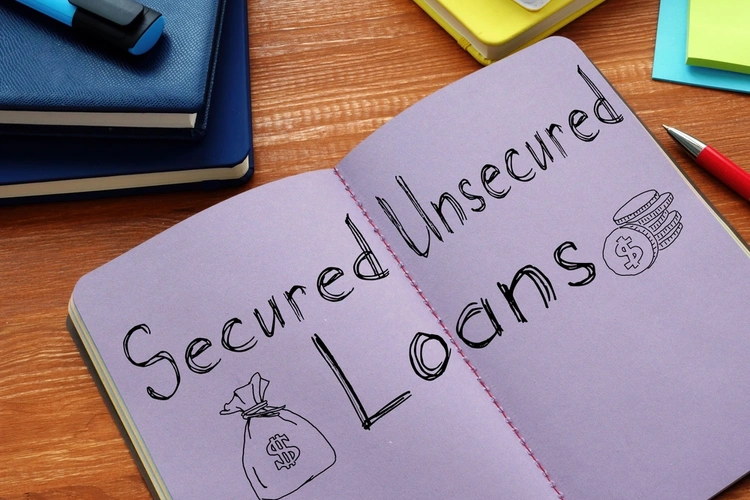What is a secured loan?
A secured loan (also known as a homeowner loan or second charge mortgage) is a type of loan where you offer an asset, like your home, to back the loan as collateral.
This means if you fall behind on repaying the loan, the lender can take back your property to recover their money.
Advantages of secured loans
- Potentially lower interest rates – compared to unsecured loans of the same size. This is because using your property as a security reduces the risk for the lender.
- Higher loan amounts - lenders might offer larger sums, with the loan being tied to an asset. We offer homeowner loans between £10,000 and £500,000.
- Improved approval chances - it's often easier to get approved for a secured loan – even if you have a low credit score. Again, this is because your property acts as security for the lender.
Disadvantages of secured loans
- You could pay more interest in total – if you spread the repayments over a longer period.
- Borrowing more might lead to financial difficulty – especially if your circumstances change. Only borrow what you need and can afford to repay.
- Potential risk to your property - if you can't repay the loan, you risk losing your property (in the worst-case scenario).
Here at Ocean, we have qualified advisers on hand who can walk you through the secured loan application process and check if it’s the right option for you. We can do the hard work for you and can help find a loan tailored to your individual circumstances.
What is an unsecured loan?
An unsecured loan (or a personal loan) doesn’t need an asset to back the loan. Instead, lenders rely more heavily on your creditworthiness to decide whether to approve your application. This means that they look more at your credit history, which shows them how well you have managed money in the past.
Advantages of unsecured loans
- No collateral needed - so they are more accessible to those without an asset. And if you are a homeowner, you won’t lose your property if you can't repay the loan.
- Faster approval - unsecured loans often have a quicker application process.
- Shorter repayment terms – you can usually take out a personal loan for up to 5 years (or more). This means that you could clear a personal loan quicker than a secured loan and pay less interest overall - though your monthly repayments may be higher as a result.
Disadvantages of unsecured loans
- Lower loan amounts - you might not be able to borrow as much compared to secured loans.
- Lenders focus more on your credit score – while it is possible to get an unsecured loan with bad credit, you could have fewer options, and interest rates may be higher.
- Higher interest rates - without collateral, lenders may charge more for the risk they take. The lowest interest rates are typically offered to those with the highest credit scores.
A credit card or 0% overdraft are other forms of unsecured lending that you could consider if you only need to borrow a small amount.
Secured vs unsecured loans: key differences
Now that we’ve looked at both types of loans, let's compare their typical properties side by side.
|
Secured loans |
Unsecured loans |
|
You must have an asset to use as security |
You don’t need any form of security |
|
Larger amounts |
Smaller amounts |
|
Longer loan terms |
Shorter loan terms |
|
Potentially lower interest rates |
Potentially higher interest rates |
|
Longer approval process (approx. 3 - 4 weeks) |
Quicker approval process (approx. a few hours to a week) |
|
Missed payments could lead to the repossession of your property and will cause damage to your credit score |
Missed payments will damage your credit score but your property won’t be repossessed |
Loans for all purposes from £1,000 to £500,000
- Get a decision online
- Know your rate before you apply
- Comparing won't affect your credit score
Intelligent Lending Ltd is a credit broker, working with a panel of lenders. Homeowner loans are secured against your home.

Do secured and unsecured loans affect your credit score?
Yes, both secured loans and unsecured loans can affect your credit score in positive and negative ways, depending on how you manage them. The higher your credit score is, the easier you might find it to get approved for a loan and access lower interest rates.
Credit utilisation ratio
If you use a secured or unsecured loan to clear credit card debt, it can boost your credit score. This is because it lowers your credit utilisation ratio (the amount you’re using out of your available credit card limit).
Payment history
Both types of loan can improve your credit rating if you always pay on time. But your credit score will drop if you miss payments.
Hard credit checks
Each secured or unsecured loan application you make can cause a temporary dip in your credit score. This is because the lender will carry out a hard credit check every time.
So, it’s best to use an eligibility checker to find out your chances of approval, before you apply. This can help to limit the number of applications you make, and protect your credit score as a result.
Which type of loan is right for you?
Your financial needs, personal circumstances, and comfort with risk will help you decide which loan is best for you.
Here are some factors to consider:
Consider a secured loan if you:
- are a homeowner
- are comfortable using your property as security
- need a larger sum of money (e.g., for expensive home renovations)
- want lower interest rates
- have a less-than-ideal credit score
Consider an unsecured loan if you:
- want a smaller sum of money
- need the money quickly
- aren't a homeowner, or don’t want to use your property as security
Whichever type of loan you choose, you need to make sure you can afford the repayments and factor these into your monthly budget. It’s also important to read the terms and conditions carefully before signing on the dotted line.
Disclaimer: We make every effort to ensure content is correct when published. Information on this website doesn't constitute financial advice, and we aren't responsible for the content of any external sites.






